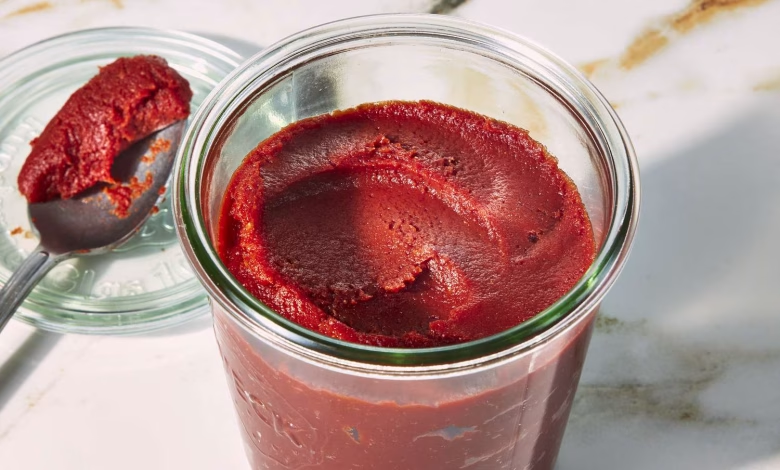KNUST Study Uncovers Harmful Substances in Tomato Paste Sold in Ghana

- Harmful dye erythrosine found in some tomato paste samples
- FDA regulations breached, posing health risks to consumers
- Researchers urge FDA to take immediate action to ensure food safety
A recent study conducted by the Kwame Nkrumah University of Science and Technology (KNUST) has revealed alarming levels of starch and erythrosine in some tomato paste samples sold in Ghana.
The research, led by Dr. Abena Boakye of the Department of Food Science and Technology, aimed to assess the quality of tomato concentrates available on the market. Eight different brands that met standard labeling requirements were selected for the study, which was conducted in Kumasi and Accra.
Erythrosine, also known as Red Dye No. 3, is a colorant commonly used in food products such as toffees, candies, and drinks. However, the Food and Drugs Authority (FDA) in Ghana prohibits the use of erythrosine in tomato paste production due to its potential health risks. Starch is also not permitted in tomato paste formulations.
The study’s findings, published in the International Journal of Food Science, revealed that all samples had a color range from red to dark red, a paste-like appearance, and the characteristic taste of tomato concentrate, conforming to standard physical requirements.
However, the research found that the total natural tomato content in some sampled brands fell outside the recommended range, which requires tomato paste to have at least 24% natural tomato content. More disturbingly, erythrosine was detected in two samples, despite not being indicated on the labels. The study also found starch content ranging from 1g/100g to 24g/100g in the products sampled.
The research team has called on the FDA to take urgent action to remove erythrosine from tomato products and extend its regulations to include confectionery, drinks, and other food products.
“The Ghana FDA should not only focus on removing erythrosine from tomato products but also extend its regulations to include manufacturers of confectionery, candies, drinks, and other food products containing this harmful dye,” the report stated.
The researchers also recommended that the findings be used to inform stakeholders and guide necessary steps to provide safe tomato concentrates and other food products for consumers.
“These findings should fuel further research and inform policymakers on the necessary steps to ensure the safety of food products available to consumers,” the report concluded.
The US Food and Drug Administration (USFDA) completely banned erythrosine from food products in January, citing potential health risks, and has given manufacturers two years to remove it from shelves and eliminate its use entirely.






